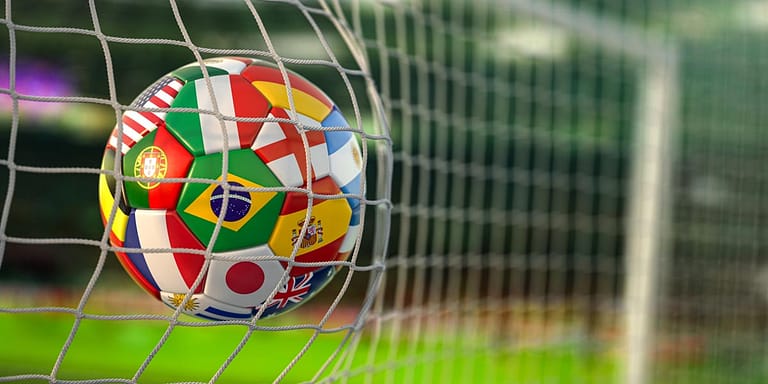Exalting the Memorable Olympic Football Tournament
The Olympic football tournament is a rare, thrilling event. It showcases the best young talent from around the world. It’s a chance for players to represent their countries. They will compete for the coveted gold medal on the biggest stage. But how does it all work? Let’s dive in and explore the ins and outs of this incredible tournament.

How to Qualify for the Olympic Football Tournament: Eligibility and Selection Process
To qualify for the Olympic football tournament, players must meet certain age restrictions. For the men’s tournament, players must be under 23 years old, with three overage players allowed per team. The women’s tournament has no age restrictions.
Teams can qualify through their respective confederations, such as UEFA, CONMEBOL, CONCACAF, AFC, CAF, and OFC. The host country automatically qualifies, and Great Britain also gets a spot.
Olympic Football Tournament Format: The Group Stage, Knockout Rounds, and Gold Medal Match
The tournament starts with a group stage. Teams are divided into groups and play each other once. The top two teams from each group advance to the knockout stage. It includes the quarter-finals, semi-finals, a bronze medal match, and a gold medal match.
Key Rules and Regulations of the Olympic Football Tournament
The Olympic football tournament uses most of the same rules as regular football. But, there are a few key differences.
- Matches are played over 90 minutes, with extra time and penalties if necessary
- Teams are allowed five substitutions per match
- The video assistant referee (VAR) system is used to review key decisions
Notable Olympic Football Tournament Moments: Memorable Matches and Legendary Goals
Over the years, the Olympic football tournament has produced some incredible moments. Who could forget Mexico‘s stunning upset of Brazil in the 2012 gold medal match? Or Nigeria‘s incredible run to the gold medal in 1996?
1924: Uruguay’s Dominance Begins
- Uruguay kicked off their Olympic football legacy with a bang in 1924, winning the gold medal in Paris.
- They beat Switzerland 3-0 in the final. Their skills shone and set the stage for future success.
1952: Hungary’s “Golden Team” Shines
- Led by the legendary Ferenc Puskás, Hungary’s “Golden Team” dominated the 1952 Olympics in Helsinki.
- They won the gold medal, beating Yugoslavia 2-0 in the final. This cemented their place in football history.
1996: Nigeria’s Stunning Victory
- In 1996, Nigeria shocked the world by winning the gold medal in Atlanta.
- They beat Argentina 3-2 in the final, becoming the first African team to win Olympic gold in football.
2000: Cameroon’s Incredible Comeback
- Cameroon staged an epic comeback in the 2000 gold medal match against Spain in Sydney.
- They were down 2-0. They fought back to tie the game. They won 5-3 on penalties, getting their first Olympic gold.
| Year | Winner | Runner-Up | Score |
|---|---|---|---|
| 1924 | Uruguay | Switzerland | 3-0 |
| 1952 | Hungary | Yugoslavia | 2-0 |
| 1996 | Nigeria | Argentina | 3-2 |
| 2000 | Cameroon | Spain | 2-2 (5-3 on penalties) |
The Impact of the Olympic Football Tournament on Young Players’ Careers
For many young players, the Olympic football tournament is a chance to shine. It is a chance to show their talents to the world. It can launch their careers. Many go on to become stars for their club and national teams.
A Global Showcase of Talent and Diversity
One of the best things about the Olympic football tournament is the diversity of teams and players. From Brazil and Argentina to Japan and South Korea, the tournament features teams from all over the world.

Records and Statistics: Who Holds the Most Goals or Assists?
The Olympic football tournament has produced some incredible individual performances over the years. Neymar holds the record for most goals in the men’s tournament, with six. In the women’s tournament, Cristiane of Brazil has the most goals with 14.
The Role of Women in the Sport’s Progression
The women’s Olympic football tournament has helped grow women’s football worldwide. It’s helped to raise the profile of the sport and inspire young girls to take up the game.
The Olympic Football Tournament: A Platform for National Pride and Rivalries
For many countries, the Olympic football tournament is a chance to showcase their national pride and compete against their rivals. The tournament has produced some incredible rivalries over the years, such as Brazil vs Argentina and United States vs Canada.

Olympic Football Tournament: How Hosting the Event Impacts the Host Country
Hosting the Olympic football tournament can have a big impact on the host country. It can help to boost the local economy, improve infrastructure, and raise the profile of the sport in the country.
| Country | Men’s Gold Medals | Women’s Gold Medals |
|---|---|---|
| Hungary | 3 | 0 |
| Great Britain | 3 | 0 |
| Soviet Union | 2 | 0 |
| Uruguay | 2 | 0 |
| Argentina | 2 | 0 |
| United States | 1 | 4 |
| Germany | 1 | 1 |
| Nigeria | 1 | 0 |
| Cameroon | 1 | 0 |
| Mexico | 1 | 0 |
| Brazil | 1 | 2 |
| Canada | 0 | 1 |
| Norway | 0 | 1 |
| Japan | 0 | 1 |
The Olympic football tournament is a truly special event that brings together the best young talent from around the world. From the qualifying process to the final match, it’s a thrilling showcase of skill, passion, and national pride.

